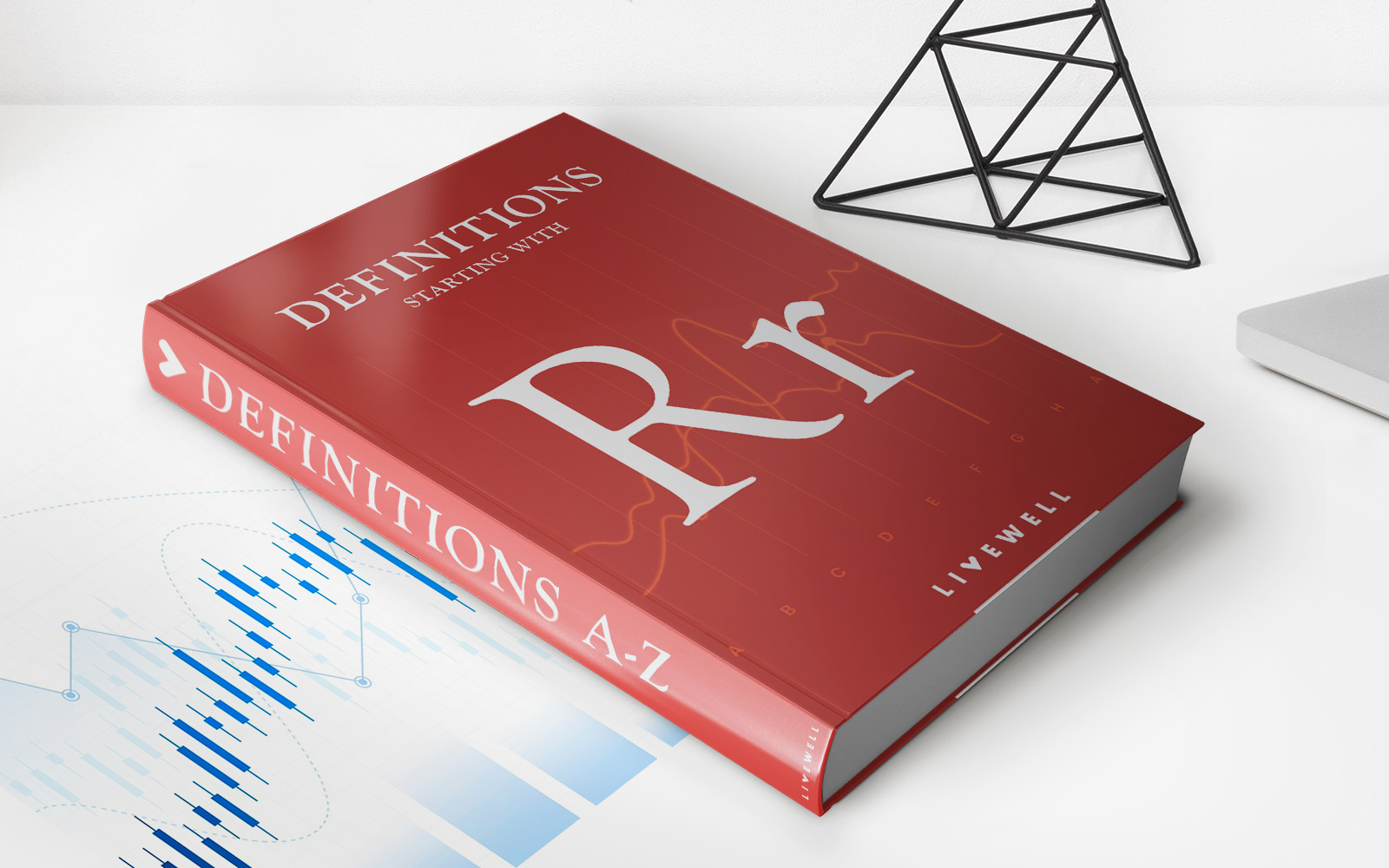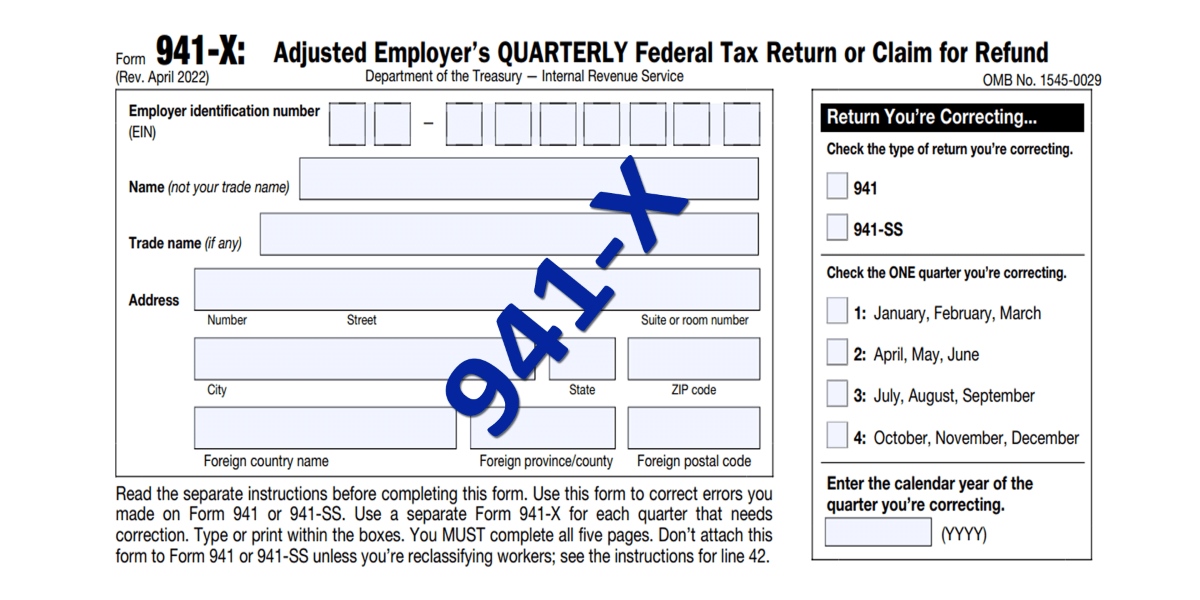Home>Finance>What Offers Financial Protection Against Losses Resulting From A Title Defect?


Finance
What Offers Financial Protection Against Losses Resulting From A Title Defect?
Modified: December 30, 2023
Looking for financial protection against title defects? Explore our comprehensive finance solutions to safeguard your investments from potential losses.
(Many of the links in this article redirect to a specific reviewed product. Your purchase of these products through affiliate links helps to generate commission for LiveWell, at no extra cost. Learn more)
Table of Contents
- Introduction
- Understanding Title Defects
- Risks and Consequences of Title Defects
- Importance of Financial Protection
- Types of Financial Protection Against Title Defects
- Title Insurance: An Overview
- Coverage Provided by Title Insurance
- Benefits of Title Insurance
- Cost of Title Insurance
- Alternatives to Title Insurance
- Conclusion
Introduction
When it comes to real estate transactions, one of the most crucial aspects is ensuring that the property has a clear and marketable title. However, title defects can arise, posing a significant risk to buyers and lenders. A title defect refers to any issue that affects the legal ownership or validity of the property’s title.
Common title defects include errors or omissions in the public records, undisclosed liens, unpaid taxes, forgery, fraud, and conflicting or missing heirs. These defects can have serious consequences, such as clouded ownership, legal disputes, and financial losses.
That’s where financial protection against title defects comes into play. Having the right safeguards in place can provide peace of mind and financial security. In this article, we will explore the risks associated with title defects, the importance of financial protection, and the different types of protection available to buyers and lenders.
Whether you are buying a new home or investing in commercial property, understanding the potential risks and ways to mitigate them is essential. By being informed and proactive, you can protect yourself from the potential pitfalls of title defects and ensure a smooth and secure real estate transaction.
Understanding Title Defects
Before diving into the various forms of financial protection against title defects, it is crucial to understand what constitutes a title defect in the first place. A title defect refers to any legal issue that affects the rightful ownership or validity of a property’s title. These defects can arise due to a variety of factors, such as errors or omissions in public records, undisclosed liens, unpaid taxes, fraud, forgery, or inheritance issues.
Some common types of title defects include:
- Errors or Omissions: Mistakes or missing information in public records, such as incorrect property descriptions or improperly recorded documents, can lead to title defects.
- Unknown Liens or Encumbrances: Liens, mortgages, or other financial obligations against the property that were not disclosed can cloud the title and create legal complications.
- Forgery or Fraud: Instances of fraudulent activities, such as forged signatures on property documents, can result in title defects.
- Unresolved Legal Claims: Pending lawsuits, unresolved boundary disputes, or competing ownership claims can jeopardize the validity of a property’s title.
- Inheritance Issues: If the property’s ownership is unclear due to inheritance complications, such as missing wills or conflicting heirs, it can introduce title defects.
It is important to note that even a minor title defect can have severe consequences for both buyers and lenders. Without the proper financial protection in place, a title defect can lead to costly legal battles, delayed closings, or even loss of ownership rights.
Understanding the nature and implications of title defects is essential for anyone involved in real estate transactions. Whether you are a homebuyer, seller, or lender, being aware of the potential risks allows you to take necessary precautions and seek suitable financial protection.
Risks and Consequences of Title Defects
Title defects can pose significant risks to both buyers and lenders involved in real estate transactions. Failing to address or adequately protect against these defects can result in severe consequences that can impact financial stability and even ownership rights.
Some of the key risks and consequences of title defects include:
- Clouded Ownership: A title defect can cast doubts on the true ownership of a property, making it challenging to establish a clear chain of ownership. This can lead to disputes and legal battles over who has the rightful claim to the property.
- Legal and Financial Consequences: Title defects can trigger lawsuits and legal expenses to resolve the ownership issue. It may also require the buyer or lender to pay outstanding debts, liens, or taxes associated with the property.
- Loss of Property: In some cases, a significant title defect can result in the loss of the property altogether. If the defect is not remedied, a court can rule in favor of a competing claim, resulting in the loss of ownership rights.
- Difficulty in Selling or Financing: A property with a known title defect can be challenging to sell or finance. Potential buyers or lenders may be hesitant to proceed with a transaction due to the associated uncertainties and risks.
- Negative Impact on Property Value: A property with title defects typically has a diminished market value. Buyers may want to negotiate a lower price or walk away from the deal entirely, causing financial losses for the seller.
It is crucial to address title defects promptly to mitigate these risks and avoid the potential consequences. By having appropriate financial protection in place, buyers and lenders can safeguard their interests and minimize the potential financial and legal fallout.
Importance of Financial Protection
Given the risks and consequences associated with title defects, having adequate financial protection is of utmost importance for buyers and lenders involved in real estate transactions. Financial protection provides a safety net to mitigate potential losses, legal complications, and financial liabilities that may arise due to title defects.
Here are a few reasons why financial protection against title defects is crucial:
- Protection of Investment: Real estate transactions involve substantial financial investments. Purchasing a property without sufficient financial protection leaves buyers vulnerable to potential losses resulting from undisclosed liens, errors in public records, or other title defects. Financial protection helps safeguard their investment and provides peace of mind.
- Prevention of Legal Battles: Title defects can lead to lengthy and costly legal battles. By having the appropriate financial protection, buyers and lenders can avoid the hassle and expenses associated with resolving ownership disputes or other legal complications.
- Secure Lender’s Interests: Lenders typically require financial protection against title defects to secure their financial interest in a property. This protection assures them that the property’s title is clear and free from any disputes or liens that could jeopardize their investment.
- Smooth Real Estate Transactions: Financial protection ensures a smoother and more efficient real estate transaction. It helps expedite the closing process by providing confidence to all parties involved, minimizing the likelihood of last-minute complications or delays caused by title defects.
- Peace of Mind: Buying or lending against a property is a significant decision that can impact one’s financial well-being. Having financial protection against title defects allows buyers and lenders to proceed with confidence, knowing that they are protected from unforeseen issues and potential financial losses.
Overall, the importance of financial protection against title defects cannot be overstated. It not only provides a layer of security to buyers and lenders but also helps facilitate smoother and more secure real estate transactions.
Types of Financial Protection Against Title Defects
There are several ways to obtain financial protection against title defects. Each method offers a different level of coverage and suits various needs and preferences. The following are the most common types of financial protection available:
- Title Insurance: Title insurance is perhaps the most popular and widely used form of financial protection against title defects. It provides coverage for potential losses arising from title defects that may not be discovered during the title search and examination process. Title insurance protects both the buyer and lender and offers peace of mind by guaranteeing a marketable title.
- Lender’s Title Insurance: Lender’s title insurance protects the lender’s financial interest in a property in case of title defects. It is typically required by lenders as a condition for providing a mortgage or loan. This form of insurance protects the lender against losses resulting from title issues that may affect their ability to enforce the mortgage lien.
- Owner’s Title Insurance: Owner’s title insurance protects the buyer’s investment in the property. It covers the buyer’s losses in case of title defects that may arise after the purchase, such as undiscovered liens, forgery, or undisclosed heirs. Owner’s title insurance provides peace of mind to buyers by assuring them that their ownership rights are protected.
- Legal Counsel: Engaging a real estate attorney can provide valuable legal advice and guidance to mitigate the risks associated with title defects. Attorneys can conduct a thorough examination of the property’s title, identify potential issues, and help navigate any legal complications that may arise.
- Escrow Services: Escrow services provide protection by acting as a neutral third party in a real estate transaction. They hold funds and documentation until all conditions of the transaction are met. Escrow agents help ensure that the transfer of ownership occurs only when the title is clear and all legal requirements are satisfied.
It is important to assess your unique situation and consult with professionals to determine the most suitable form of financial protection against title defects. Whether it is through title insurance, legal counsel, or escrow services, having the right protection in place is crucial for a secure and smooth real estate transaction.
Title Insurance: An Overview
One of the most common and effective forms of financial protection against title defects is title insurance. Title insurance is a specialized type of insurance that provides coverage for potential financial losses resulting from title defects. It offers protection to both buyers and lenders and ensures a marketable and clear title.
Unlike other forms of insurance that protect against future events, title insurance primarily focuses on past events that may affect the ownership of the property. It provides coverage for issues that may not have been discovered during the title search and examination process, such as undiscovered liens, encumbrances, forgeries, or undisclosed heirs.
Title insurance typically consists of two policies:
- Lender’s Policy: This protects the lender’s financial interest in the property. It is a requirement for most lenders when providing a mortgage or loan. The lender’s policy remains in effect until the loan is paid off or refinanced.
- Owner’s Policy: This protects the buyer’s investment in the property. It provides coverage for as long as the buyer or their heirs have an ownership interest in the property. The owner’s policy provides peace of mind by assuring the buyer that their ownership rights are protected.
The process of obtaining title insurance involves an extensive investigation of the property’s title history, performed by a title company or attorney. This examination involves reviewing public records, land surveys, and other relevant documentation to identify any potential issues or defects that could impact the title. If any defects are found, the title company works to rectify them or provides coverage for any potential losses.
It is important to note that title insurance is a one-time premium paid at the time of the property purchase or refinancing. The cost of title insurance varies depending on factors such as the property value, location, and the policy coverage amount.
Title insurance provides a comprehensive and reliable form of financial protection against title defects. It offers reassurance to buyers and lenders that they can proceed with a real estate transaction without the fear of potential ownership disputes or unforeseen financial liabilities.
Coverage Provided by Title Insurance
Title insurance provides coverage for a range of potential issues and risks related to a property’s title. The specific coverage can vary depending on the type of policy and the terms of the insurance contract. Here are some common areas of coverage provided by title insurance:
- Protection against Unknown Liens and Encumbrances: Title insurance helps protect against undiscovered liens, mortgages, or encumbrances that were not disclosed during the title search. If a previously unknown lien arises, the insurance will cover the costs associated with resolving the issue or pay for any resulting financial losses.
- Coverage for Forgery and Fraud: Title insurance offers protection against instances of forgery or fraud that may affect the property’s title. If a forged document is discovered or a fraudulent transaction is uncovered, the insurance policy will provide coverage for the buyer or lender.
- Defects in the Title: Title insurance covers defects in the property’s title. These defects may include errors or omissions in public records, improperly executed documents, or unresolved legal claims. If a defect affects the title’s validity or marketability, the insurance policy will provide coverage for any resulting losses.
- Boundary and Survey Issues: Title insurance may provide coverage for boundary and survey issues. This includes situations where a neighbor encroaches on the property or disputes arise over property lines. The insurance policy can cover legal expenses or losses associated with resolving such issues.
- Ownership Challenges: If a competing ownership claim arises after the purchase of the property, title insurance can provide coverage for the legal costs and potential losses associated with defending against the challenge or resolving the dispute.
It is important to review the specific terms and conditions of the title insurance policy to understand the extent and limitations of the coverage provided. Policyholders should consult with the title insurance company or their attorney to clarify any questions or concerns regarding the coverage.
While title insurance provides valuable coverage, it is essential to note that it may have certain exclusions or exceptions. For example, title insurance typically does not cover issues that were known and disclosed to the policyholder before purchasing the property. Policyholders should carefully read the policy and discuss any concerns with their insurance provider to ensure they have a clear understanding of the coverage.
Overall, title insurance offers comprehensive protection against a range of title defects and risks. It provides peace of mind to buyers and lenders, ensuring that they are financially protected in case of any unforeseen issues or disputes related to the property’s title.
Benefits of Title Insurance
Title insurance provides numerous benefits to both buyers and lenders involved in real estate transactions. Understanding these benefits can help individuals make informed decisions and protect their interests. Here are some key advantages of having title insurance:
- Financial Protection: Title insurance offers financial protection against potential losses resulting from undiscovered title defects. If a title issue arises after the property purchase, the insurance policy will cover the costs associated with resolving the issue or compensate for any resulting financial losses.
- Peace of Mind: Knowing that you have title insurance gives you peace of mind during the real estate transaction. It assures you that the property’s title has been thoroughly examined and any potential risks have been addressed. This confidence allows buyers and lenders to proceed with the transaction without fear of unexpected legal issues or financial liabilities.
- Marketable and Clear Title: Title insurance ensures that you are receiving a marketable and clear title to the property. It provides assurance that there are no undiscovered liens, encumbrances, or ownership disputes that could impact the property’s ownership rights or marketability.
- Streamlined Closing Process: Having title insurance in place can help expedite the closing process. It provides confidence to all parties involved, including buyers, sellers, and lenders, as they know that the property’s title has been thoroughly examined. This can help minimize any last-minute complications or delays that may arise due to title defects.
- Protection for Lenders: Lenders require title insurance to protect their financial interests in the property. With lender’s title insurance, they have assurance that their mortgage or loan is secured by a clear and marketable title. In the event of a title defect, the policy provides coverage for any potential losses the lender may incur as a result.
- Protection for Owners: Owner’s title insurance protects the buyer’s investment in the property. It provides coverage for future title defects that may arise, such as undiscovered liens or encumbrances. This protection ensures that owners can enjoy their property without the fear of unexpected legal issues or financial burdens.
- Legal Support: Title insurance often includes access to legal representation if a title issue arises. This can be invaluable in navigating any potential legal disputes or complications that may arise during or after the real estate transaction.
Overall, title insurance offers significant benefits to buyers and lenders by providing financial protection, peace of mind, and a streamlined closing process. It helps ensure that the property’s title is clear and marketable, protecting the investment and ownership rights of the parties involved.
Cost of Title Insurance
The cost of title insurance varies depending on several factors, including the property’s value, location, and the policy coverage amount. Generally, the cost of title insurance is a one-time premium paid at the time of the property purchase or refinancing.
The premium for title insurance is based on a percentage of the property’s purchase price or loan amount. Typically, the rate falls within a range of 0.5% to 1% of the property’s value. For example, if the property’s purchase price is $300,000, the title insurance premium could range from $1,500 to $3,000.
It is important to note that while the premium is a one-time payment, title insurance provides coverage for as long as the policyholder owns the property or has an interest in it. This is in contrast to other types of insurance that require annual or periodic premium payments.
In some cases, additional endorsements or coverage options may be available at an additional cost. These endorsements provide additional protection against specific risks or circumstances that may not be covered under the standard title insurance policy. Common endorsements include coverage for zoning, survey issues, or mechanics’ liens.
It is worth mentioning that the cost of title insurance is a fraction of the overall transaction costs associated with a real estate purchase. Considering the potential financial risks and consequences of title defects, the cost of title insurance is a relatively small investment to protect your ownership rights and financial interests.
When obtaining title insurance, it is essential to work with a reputable title insurance company or agent. They will provide you with detailed information regarding the premium cost and any additional endorsements available. They can also answer any questions or concerns you may have about the coverage and assist you in making an informed decision.
While title insurance adds to the upfront costs of a real estate transaction, it offers invaluable protection and peace of mind. By having financial protection against title defects, buyers and lenders can confidently proceed with their property transaction, knowing they are safeguarded against potential legal and financial risks.
Alternatives to Title Insurance
While title insurance is the most common form of financial protection against title defects, there are some alternatives that buyers and lenders can consider. These alternatives may vary in availability and effectiveness depending on the jurisdiction and specific circumstances. Here are a few alternatives to title insurance:
- Legal Opinion: Instead of purchasing title insurance, buyers and lenders have the option to rely on a legal opinion. This involves engaging a real estate attorney to conduct a thorough examination of the property’s title and provide a professional opinion on its validity and marketability. While a legal opinion can provide valuable insights, it may not offer the same level of financial protection as title insurance.
- Abstract of Title: An abstract of title is a summarized history of a property’s title, documenting all recorded documents and transactions that affect ownership. Buyers and lenders may choose to rely on an abstract of title to understand the property’s history and identify potential issues. However, it is important to note that an abstract of title is not the same as insurance and does not provide the same level of financial protection against title defects.
- Torrens System: The Torrens system, also known as land registration, is an alternative to the traditional title registry system. In the Torrens system, the government issues a certificate of title which serves as conclusive proof of ownership. This system provides a centralized and secure method of registering and transferring property ownership, reducing the risk of title defects. However, the availability of the Torrens system may vary depending on the jurisdiction.
- Escrow Services: Engaging a neutral third party, such as an escrow company or attorney, can provide an added layer of protection during a real estate transaction. Escrow services hold funds and documentation until all conditions of the transaction are met, including a thorough examination of the property’s title. While escrow services do not provide the same level of financial protection as title insurance, they help ensure a smooth closing process and provide confidence that all legal requirements are satisfied.
- Self-Insurance: In some cases, buyers or lenders may choose to assume the risk themselves without purchasing title insurance or relying on other forms of financial protection. This approach, often referred to as self-insurance, means that the buyer or lender is responsible for any potential losses resulting from undiscovered title defects. While this option may save on upfront costs, it exposes the parties to significant financial risks and legal complications.
It is important to carefully consider the alternatives to title insurance and assess the level of protection and risk tolerance involved. Consulting with a real estate attorney or professional title insurance provider can help you make an informed decision based on your specific circumstances and local regulations.
Ultimately, while alternatives to title insurance exist, they may not provide the same comprehensive financial protection and peace of mind as title insurance. It is generally recommended to weigh the potential risks and benefits and choose the option that offers the most suitable level of protection for your real estate transaction.
Conclusion
Financial protection against title defects is a crucial aspect of any real estate transaction. Title defects can have serious consequences, including clouded ownership, legal disputes, and financial losses. Having the appropriate safeguards in place is essential to mitigate these risks and ensure a smooth and secure transaction.
Title insurance has emerged as the most popular and effective form of financial protection against title defects. It offers comprehensive coverage for potential losses arising from undiscovered liens, encumbrances, fraud, forgery, and other title issues. Title insurance provides peace of mind to both buyers and lenders by guaranteeing a marketable and clear title, protecting their investments and financial interests.
However, it is important to consider alternatives to title insurance and assess their suitability based on individual circumstances and local regulations. Options such as legal opinions, abstracts of title, the Torrens system, escrow services, or self-insurance can provide some level of protection but may not offer the same comprehensive coverage as title insurance.
Regardless of the chosen method, the importance of financial protection against title defects cannot be understated. By addressing and mitigating potential risks, buyers and lenders can proceed with confidence, knowing that they are protected from unexpected legal issues or financial liabilities.
In conclusion, thorough due diligence, including a comprehensive examination of the property’s title, combined with the appropriate financial protection, is crucial for a successful and secure real estate transaction. Whether through title insurance or alternative methods, being proactive in addressing title defects is essential to safeguarding your investment and ensuring a smooth transfer of ownership.













